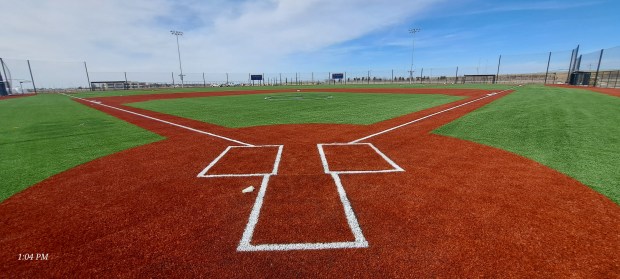The Kimball Street and Chicago Street bridges over the Fox River in Elgin need to be replaced, and residents will get their first informal look at what the city’s planning at an informational meeting Thursday.
Described as safe but functionally obsolete, both spans need to be rebuilt, an extensive and expensive undertaking. The open house-style forum from 6 to 8 p.m. at The Centre of Elgin will cover a variety of topics, including existing conditions, traffic and crash data, construction phases and project timelines, Public Services Director Mike Pubentz said.
City staff and engineering consultants will be on hand to provide details on such things as possible design elements and aesthetic features and how the work will affect the Fox River Trail, Pubentz said.
Officials also will be gathering public comments, which can have an impact on planning, he said.
“City staff and our engineering consultants have analyzed the bridges to determine our collective opinion of the issues that are driving the project,” he said. “Some solutions to those issues cannot be changed by public opinion alone.”
For example, the number of traffic lanes won’t be reduced even if members of the public want them to be because doing so would make the bridge unfunctional, Pubentz said. “(But) there are many design elements that will benefit and could be altered by the comments we receive from the public.”
Illinois Department of Transportation officials inspected the bridges in 2020 and determined both need repairs.
The Chicago Street bridge, which carries more than 4,500 vehicles a day, doesn’t meet today’s bridge or roadway design standards, according to city documents. Built in 1939, the span has been rehabilitated several times but never completely replaced, Pubentz said.
The Kimball Street bridge has structural pieces that are at the end of their useful life, requiring either high levels of maintenance or replacement, the documents say. It was built in 1917 and reconstructed in 1977.
First phase engineering and environmental studies are being done now. They will look at preliminary engineering and environmental considerations, existing conditions and how best to approach replacement.
Phase II involves completion of the actual design work and the acquistion of any land needed, followed by Phase III, which is construction.
The state will cover 80% of the Phase I cost and the city is responsible for the rest. Staff are seeking other funding sources to reduce the city’s expense, Pubentz said.
Additional informational meetings and public hearings will be held as the project progresses. The city should be able to have an approved design for both bridges by mid-2025, he said.
If all goes according to plan, bridges construction would be done between 2027 and 2030, Pubentz said. Each will take one to two years to complete, he said.
“To lessen the impact on traffic delays during construction, the bridge projects will be staggered so that only one of the bridges is under construction at any time,” he said.
Gloria Casas is a freelance reporter for The Courier-News.



